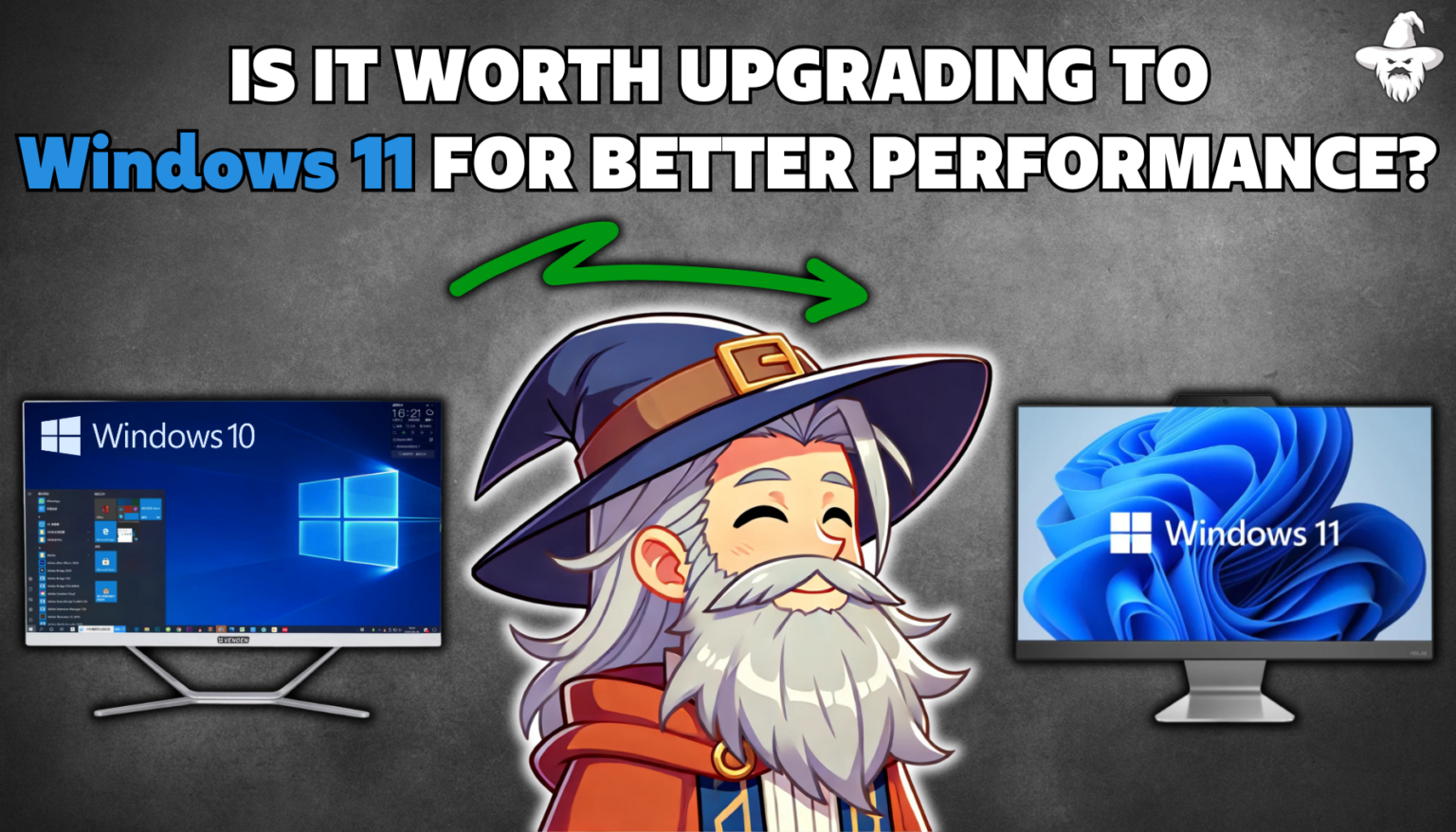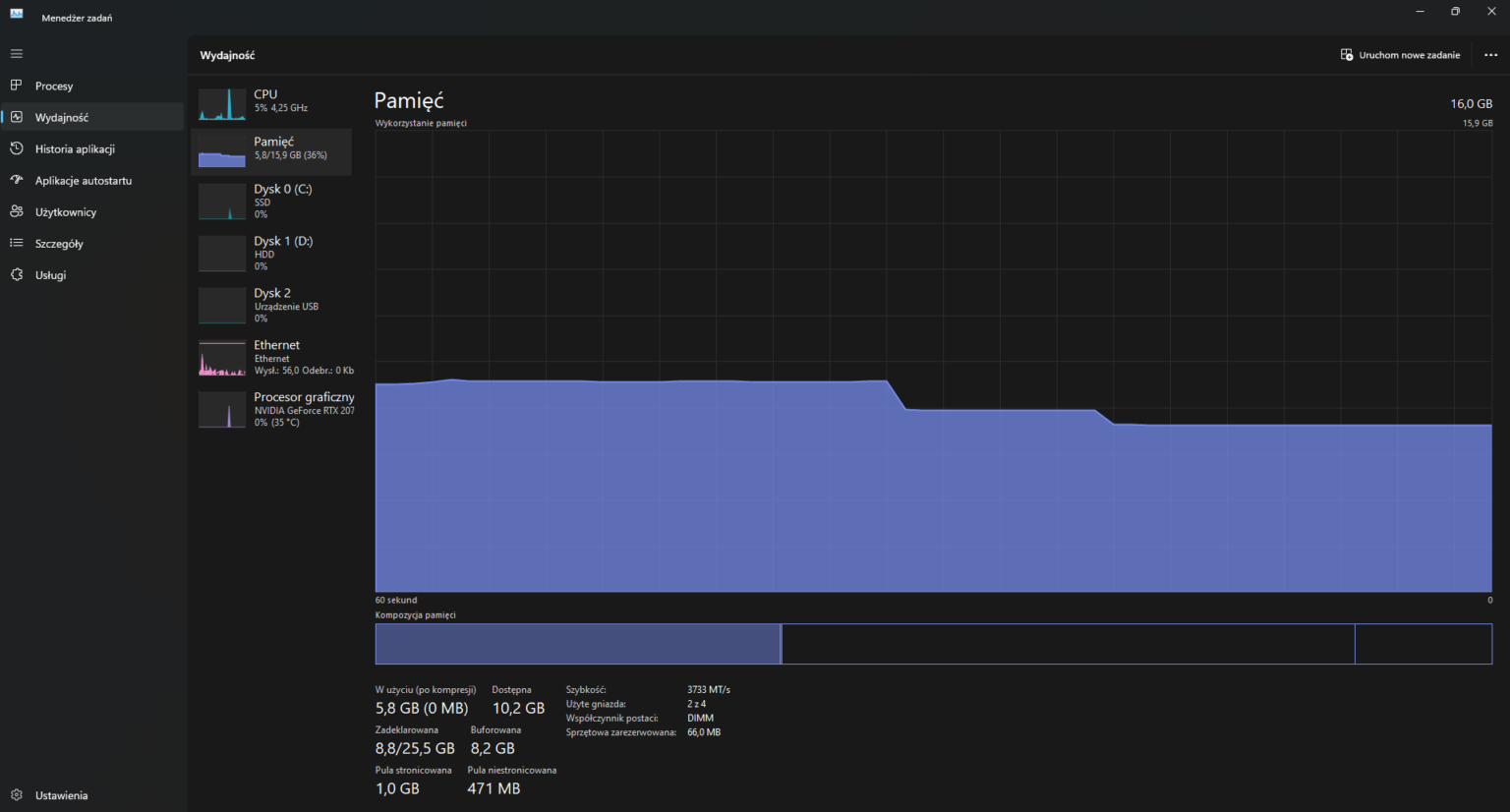1. Windows 11 Performance – What’s New?
Windows 11 has been designed to improve performance and efficiency, particularly on modern hardware. Here are the key changes impacting system performance:
1.1 Optimized Resource Management
1.2 Improved CPU Scheduling
The system efficiently allocates tasks to processor cores, particularly in modern multi-core CPUs, enhancing smoothness in games and applications.
2. Does Windows 11 Improve Gaming Performance?
Windows 11 introduces several features tailored specifically for gamers:
2.1 DirectStorage
Windows 11 supports DirectStorage, a technology that enables faster game loading by allowing direct communication between an NVMe SSD and the GPU. Benefits include:
- Faster world loading in games,
- Reduced loading screens and delays.
2.2 Auto HDR
The new Auto HDR feature enhances image quality in older games by automatically adding High Dynamic Range (HDR), provided the monitor supports it. This improves colors and contrast in games.
2.3 Gaming Optimization
Windows 11 includes a Game Mode that limits unnecessary background processes and allocates more system resources to your game, improving FPS stability and smoothness.
3. Hardware and Software Compatibility
3.1 System Requirements
Windows 11 has higher system requirements than Windows 10. To run it smoothly, your PC must meet the following:
- A processor with at least 2 cores and 1 GHz clock speed,
- 4 GB RAM (8 GB or more recommended),
- An SSD drive,
- TPM 2.0 support and Secure Boot enabled.
3.2 Compatibility Issues with Older Software
Some older applications may face compatibility issues with Windows 11. Before upgrading, ensure that your most important programs are compatible with the new system.
4. Pros and Cons of Upgrading to Windows 11
Pros:
- Better optimization for modern hardware,
- Faster game loading with DirectStorage,
- New features for gamers like Auto HDR and Game Mode,
- Modern and visually appealing user interface.
Cons:
- Higher hardware requirements,
- Potential incompatibility with older software,
- Minimal performance gains on older computers.
5. Is It Worth Upgrading to Windows 11?
For Gamers:
If you have a modern PC with an SSD, a GPU supporting DirectX 12, and an HDR monitor, upgrading to Windows 11 can deliver noticeable benefits in gaming performance.
For Everyday Users:
While Windows 11 runs smoothly, performance differences in daily tasks compared to Windows 10 are minor. If your hardware is older, it may be better to stick with Windows 10 until you upgrade your computer.
Conclusion
Windows 11 offers better resource optimization, faster game loading with DirectStorage, and new gaming features like Auto HDR and Game Mode. Upgrading to Windows 11 is particularly beneficial for users with modern hardware looking to maximize their system’s performance. However, if your computer is older, carefully consider the upgrade to ensure stable operation.


